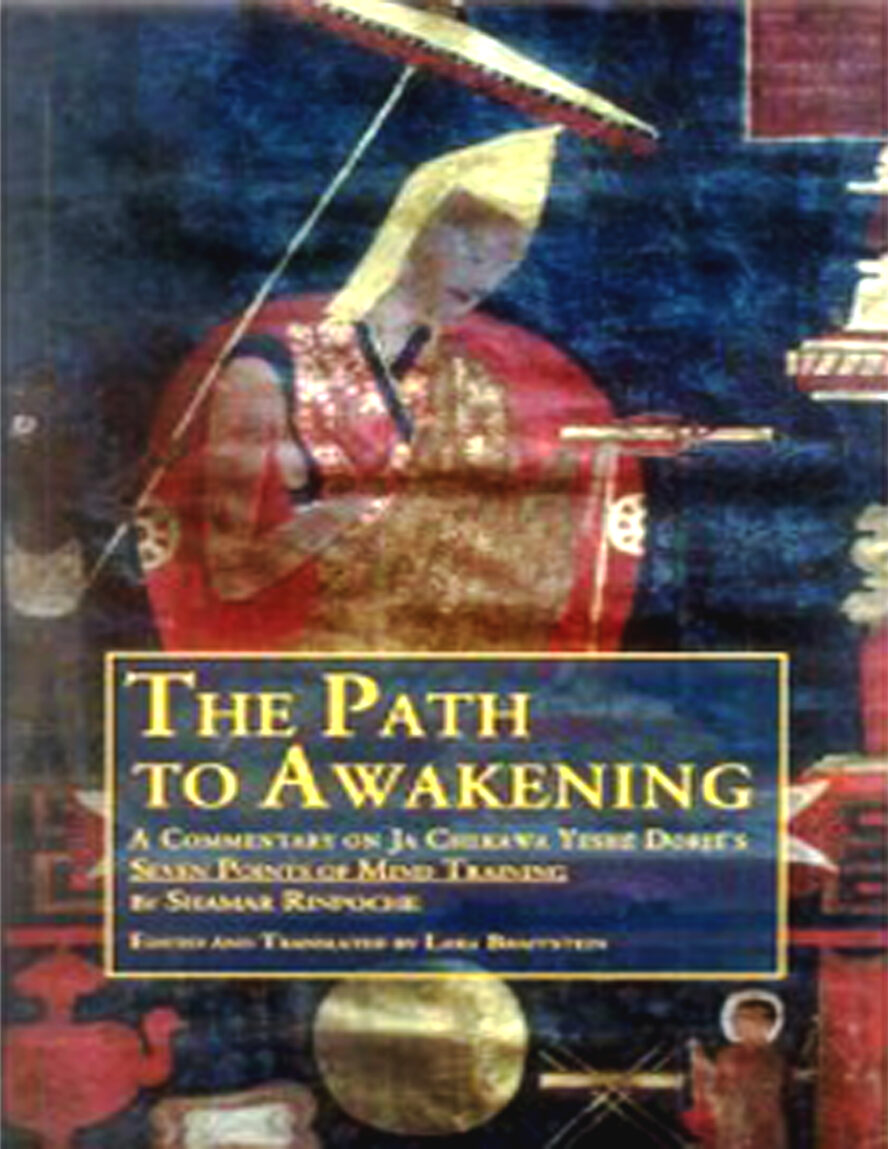Rely on the Better of the Two Witnesses
If we have succeeded in making a sufficiently good impression of ourselves that others say,
‘This person has practiced Bodhicitta very well,’ then this may be regarded as one kind of
testimony. But if we think about it, we can see that unless such people have the ability to
read our minds, our mental processes are hidden from them; they cannot know whether or
not we have applied all the antidotes. Therefore we should examine ourselves, to see
whether in fact we are less angry, less attached to ego, and whether we have been able to
practice the exchange of happiness and suffering. That is the main testimony we should rely
on. We should live in such a way that we always have a clear conscience.
Milarepa said ‘My religion is to have nothing to be ashamed of when I die’. But the majority
of people do not give any importance to this way of thinking. We pretend to be very calm
and subdued and are full of sweet words, so that ordinary people, not knowing our
thoughts, say, ‘This is a real Bodhisattva.’ But it is only our outward behavior that they see.
The important thing is not to do anything that we might have to regret later on. Therefore
we should examine ourselves honestly. Unfortunately, our ego-clinging is so gross that,
even if we do possess some small quality, we think that we are wonderful. On the other
hand, if we have some great defect, we do not even notice it. There is a saying that, ‘On the
peak of pride the water of good qualities does not stay.’ So, we should be very meticulous.
If, after thoroughly examining ourselves, we can put our hands on our hearts and honestly
think, ‘My actions are all right,’ then that is a sign that we are getting some experience in
Mind Training.
From Enlightened Courage, by Dilgo Khyentse Rinpoche.
Always Be Sustained by Cheerfulness
On account of the strength of their Mind Training, the Kadampa masters were always able
to look on the bright side of things no matter what happened to them. Even if they
contracted leprosy they would continue to be cheerful, happy in the knowledge that leprosy
brings a painless death. Of course, leprosy is one of the worst of all diseases, but we should
be resolved that, even if we were to catch it, we would continue to practice the exchange of
happiness for sorrow, taking upon ourselves the suffering of all who have fallen victim to
that affliction.
We should decide that, by virtue of the Mind Training, we will be able to take onto the path
whatever difficult situations arise. If we are able to do this with confidence, it is a sign that
we are experienced in the practice; and we will be happy come what may. In addition, we
must take upon ourselves, and experience, the sufferings of others. When others are having
to endure physical and mental illness, or are confronted with all sorts of adversity, we
should want to take it all upon ourselves. And we should do so without any hope or fear.
‘But if the sufferings of others really do come upon me, what shall I do?’ – second thoughts
like this should be completely banished from our minds.
From Enlightened Courage, by Dilgo Khyentse Rinpoche

